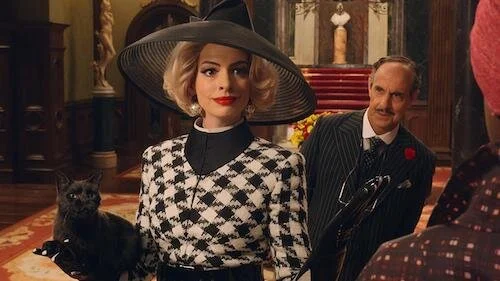Remakes of Cult Classics: Is There Ever a Right Way?
The Witches
Because of the pandemic, the annual remakes and sequels season has been prolonged to the later months of the year. Then again, there’s also the Halloween spirit, which included remake The Witches and reboot The Craft: Legacy (I know the former was a book first, but much of this 2020 version feels like it is at least influenced by the pervious film). Both films met appalling reviews by most critics. So, I’m going to ask an often discussed question in this brief article: why do these films get made? For money, of course. Maybe I should be asking something else, because the transparency of greedy studio heads has been brought up time and time again. Let’s try another question. Is there a right way to remake or reboot cult classics? Now that might have some merit to it. Let’s get started.
In short, filmmakers and producers get excited over cult films just like the rest of us, no matter what circles these films are a part of. Maybe an honest intention to bring the joys of one to a whole new generation — with better cinematic technology to boot — is at the starting point of many of these projects. Of course, most of these ideas get crushed by dollar signs that block the eyes of producers and/or filmmakers, and a passion project by everyone on board can turn into a colossal mess. There’s also the instant fate that these films possess: immediate comparison. How do these newer versions hold up to their source materials? That’s where the primary concern of remakes and reboots comes into play. You have fans of these prior iterations, and who knows what they are expecting from these new versions. In the same way that filmmakers and studios place their own spin on these tales, so do fans. Maybe one viewer wanted Mr. Smith Goes to Washington to be much darker, but a studio executive thinks that it should retain the original wholesomeness. Immediately, that’s one lost fan of the subsequent film.
The Craft: Legacy
You can’t please everyone, but this is a scenario where you’ll be doomed to please anyone. You can make your money back all you want, but the long term sales aren’t going to happen. Attracting viewers into a theatre or online for a work associated with a favourite, only for them to be handed a microwaved leftover casserole is duping them. No one wants to be duped. Maybe those that are curious will stumble upon these films down the road, but the sales will taper off incredibly quickly. Cult films have longevity. If anything, most cult films possess a certain je ne sais quoi that makes them so uniquely intriguing in the first place. A lot of these films feel like the capturing of lightning in a bottle, which, as we all know, is futile to try to do on purpose. Isn’t that what remakes and reboots are trying to achieve?
At the end of the day, I’m not sure that there is a correct way to go about remaking and rebooting cult classics, mainly because most of these kinds of examples are created with malicious intent: fleecing audiences of money in hopes that they will be dumb enough to stick around for these follow ups as well. Even if most of the cast and crew have the best intentions and are trying their best on and off the set, there’s still the initial idea which corrodes the entire project from the get-go. Even with the right means and ethics, cult classics are cult classics. Trying to replicate what made these original films so good feels like an impossible task. In the same way that there’s no perfect mold for making a film specifically a cult classic, there’s likely no way to remake them either. All we can hope for is a follow up that is good, even if it doesn’t have the lasting longevity or cult circles of the original films. At least that’s sincere.
Andreas Babiolakis has a Masters degree in Film and Photography Preservation and Collections management from Ryerson University, as well as a Bachelors degree in Cinema Studies from York University. His favourite times of year are the Criterion Collection flash sales and the annual Toronto International Film Festival.




